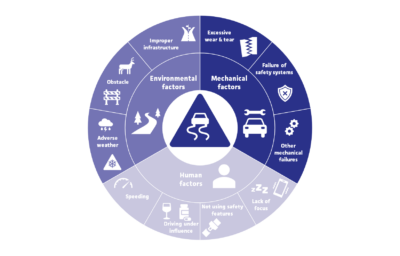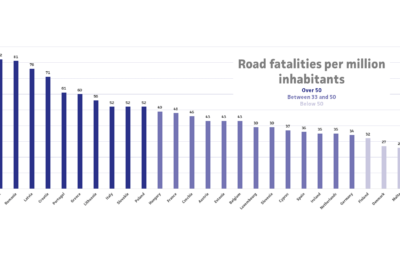Proper maintenance of vehicles is essential for safety because it helps identify and address potential issues before they become serious problems. Regular maintenance ensures that critical components such as brakes, tires, steering, and suspension are in optimal condition, reducing the risk of accidents caused by mechanical failure. Additionally, maintaining fluid levels, such as oil and coolant, helps prevent engine overheating and other malfunctions that could compromise safety on the road. Overall, proper vehicle maintenance enhances reliability and reduces the likelihood of accidents, promoting safer driving experiences for everyone on the road.
Active safety (systems and technologies reducing the risk of an accident to occur) and passive safety (items reducing the consequences for the driver, the passengers and other road users in case an accident occurs, e.g. structure of the vehicle, seat belts, airbags…) are essential. ADPA Members contribute to their maintenance over the lifespan of a vehicle, ensuring they remain fully operational and offer optimal protection to all road users. ADPA advocated for publishers of technical information to be able to propose all related information to their customers.
ADAS are technologies that assist drivers with the safe operation of a vehicle by using automated technology, such as sensors and cameras, to detect nearby obstacles or driver errors, and respond accordingly. ADAS are proven to reduce road fatalities by minimizing human error. In order to guarantee that ADAS can be maintained in optimal operational conditions over the lifetime of a vehicle, ADPA advocates for publishers of technical information to be able to provide all related information, including the list of built-in ADAS systems in a specific vehicle and their related calibration parameters.
With the uptake of electric vehicles and the relative fragility of their traction batteries, it is essential for the independent automotive aftermarket to be able to access, repair and/or replace them. However, such batteries are relatively dangerous and are associated with chemical toxicity, electric fire and high voltage risks. ADPA therefore advocates for publishers of technical information to be able to make available all relevant information on the safe handling of batteries to their customers.

Safety
13.05.2024
Accidents are often caused by a combination of various factors, among which the status of the vehicle itself and of its components is the most {...}
Read more
Safety
03.05.2024
The higher the level of ADAS in a vehicle, the lower the risk of {...}
Read more
Safety
02.05.2024
Over 20.000 people lost their lives on European roads in {...}
Read more